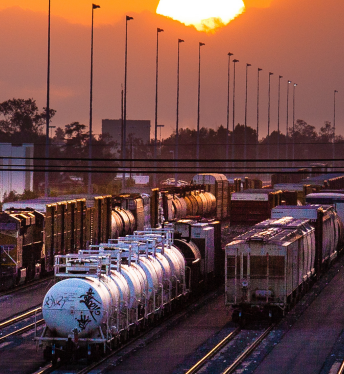The rail industry utilizes a demurrage and private car storage system to encourage the efficient use of railcars by all parties and to maintain fluid networks.
Railroads incent customers to promptly move railcars from railroad tracks, load/unload them, and then release them back to the railroad. While conceptually similar, all Class I and Short Line railroads have their own demurrage and storage rules and conditions. Details can be found within each of the railroads' tariffs.
Demurrage is a fee charged to the customer for the extended use of railroad-owned or controlled railcars on railroad tracks or customer industry tracks beyond the free (credit) day(s) granted by the railroad. For many carriers, demurrage starts at 00:01 the next day after a railcar is constructively placed (made available to the customer to order) or actually placed (when the railcar is placed at the customer's industry) by the railroad, and ends when the customer releases it back to the railroad.
Private car storage is a fee charged to the customer for the extended holding of privately owned railcars on railroad-owned tracks. For many carriers, charges for private car storage start at 00:01 the next day after the railcar is constructively placed - if the customer is closed gate - and end when the railcar is ordered for placement. Storage fees, typically lower than demurrage fees, will also be charged in the event that the customer can't accept the railcar due to space constraints. Unlike demurrage for railroad-owned cars, privately owned railcars do not incur storage fees while on the customer's industry tracks.

